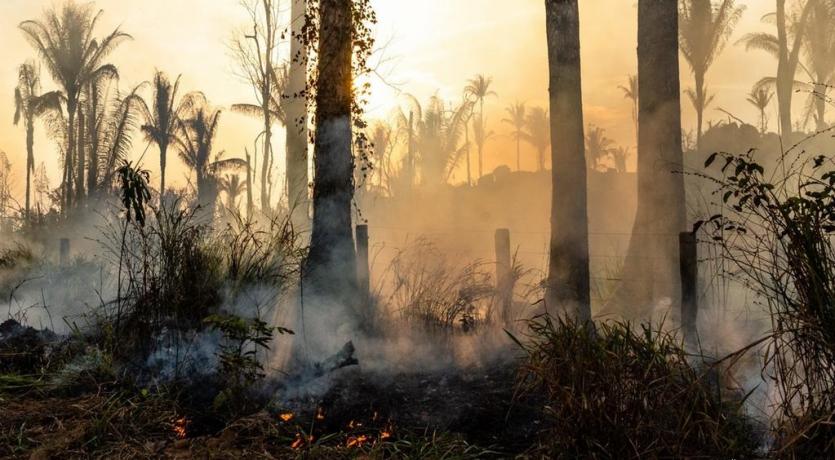Photo:TWD
World’s largest wetland in Brazil is ablaze both above and underground
By Patryk Krych | The World Daily | AUGUST 30th 2020
Brazilian firefighters have had their hands full with Amazon rainforest fires for some time now, with no sign of relent, all while the country’s President Bolsonaro consistently understates the problem. The issue has been found to worsen, however, in the Pantanal wetlands.
The burning wetlands aren’t the only issue in the Pantanal, at least on the surface level. It’s recently been made evident that fires may even burn beneath the wetlands, and remain invisible even after the surface flames have died down. This occurs when the vegetation ends up compressed beneath the wetlands’ flood water during the wet season of the marsh. The vegetation eventually dries after the marshy waters evaporate, leaving it highly flammable. These deposits can burn for a long while, out of sight.
The Pantanal wetlands are an important area in Brazil, extending into both Bolivia and Paraguay, but primarily serving as a major natural refuge for the endangered hyacinth macaw parrots. The fact that the region is currently suffering its worst fires in two decades is only further thought to be evidential of the frightful impacts of climate change. It is a flood plain that typically sees heavy rainfalls between the months of November and March. The floods were much lower than normal this year, leaving the wetlands dry and susceptible to flames.
“This is an unprecedented drought. The impotence is so painful. It’s just awful, awful,” said Ana Maria Barretto, an owner of a ranch in Mato Grosso state, which has become a very important sanctuary for the macaw population, as they flee the fires destroying their homes. Of all the 6,500 hyacinth macaws in the world, about 700 are struggling in the region.
“It’s just devastating to think that this is all connected to something much greater that the world is going through. If we don’t start to act more sustainably, I really feel for future generations. What will they have to live through?” Barretto added.
The parrot species isn’t the only one under threat, as the region’s fragile ecosystem supports the world’s densest population of jaguars, as well as tapirs, capybaras, and pumas. The fires may throw the wetlands’ biodiversity out of order entirely.
Battling surface fires is difficult enough, but battling a fire you can’t see is another challenge altogether, according to state firefighter Lieutenant Isaac Wihby, who said that the only way to really fight an underground fire would be to dig a trench around it. “But how do you do that if you have a line of fire that’s 20 kilometres long? It’s not viable,” he added.






